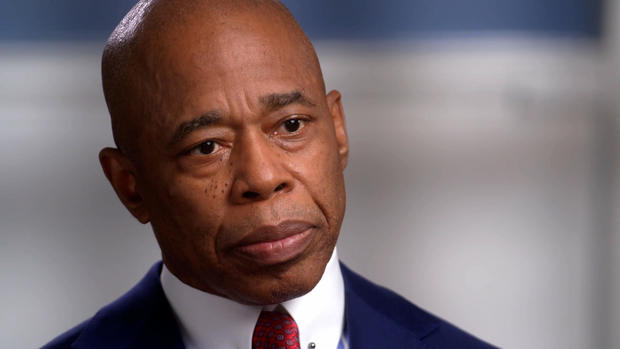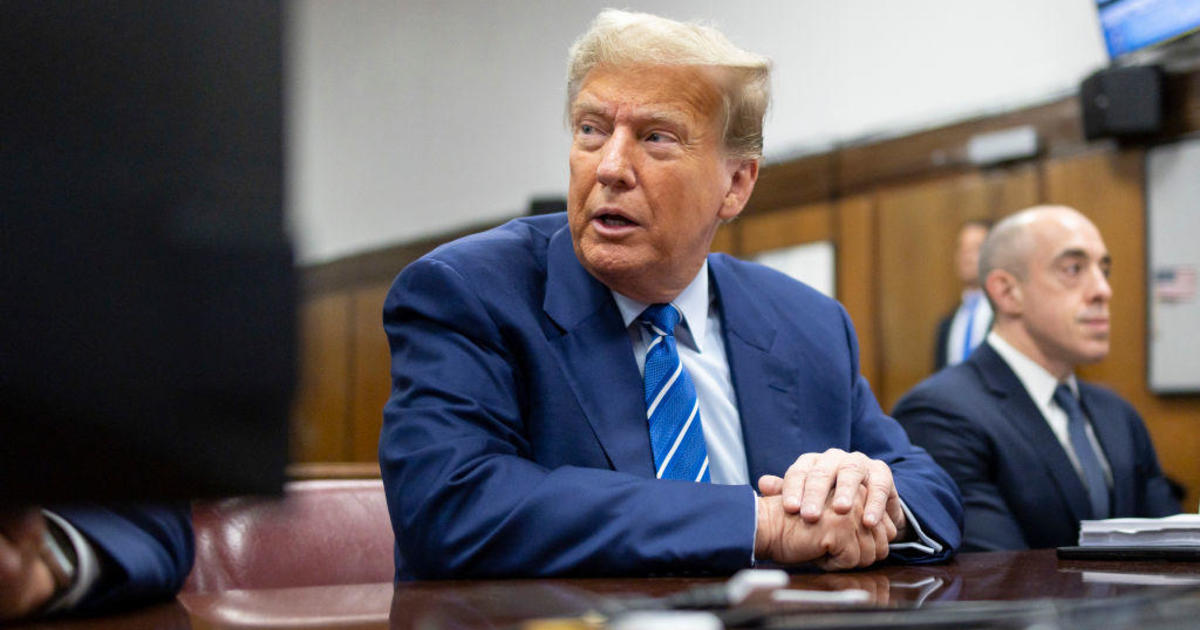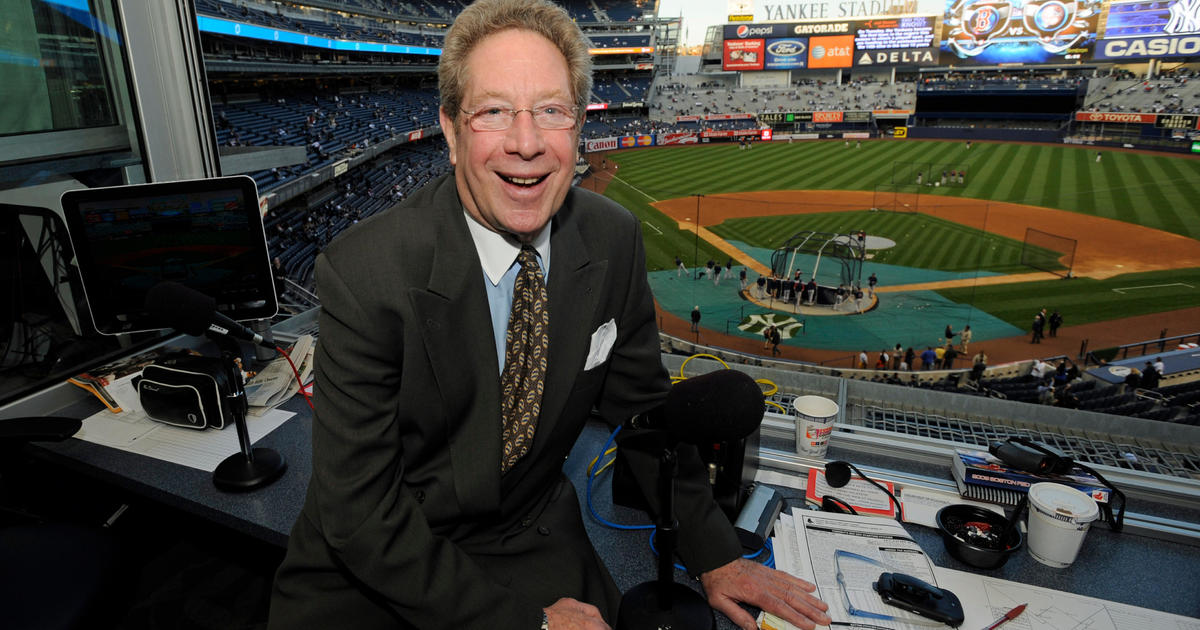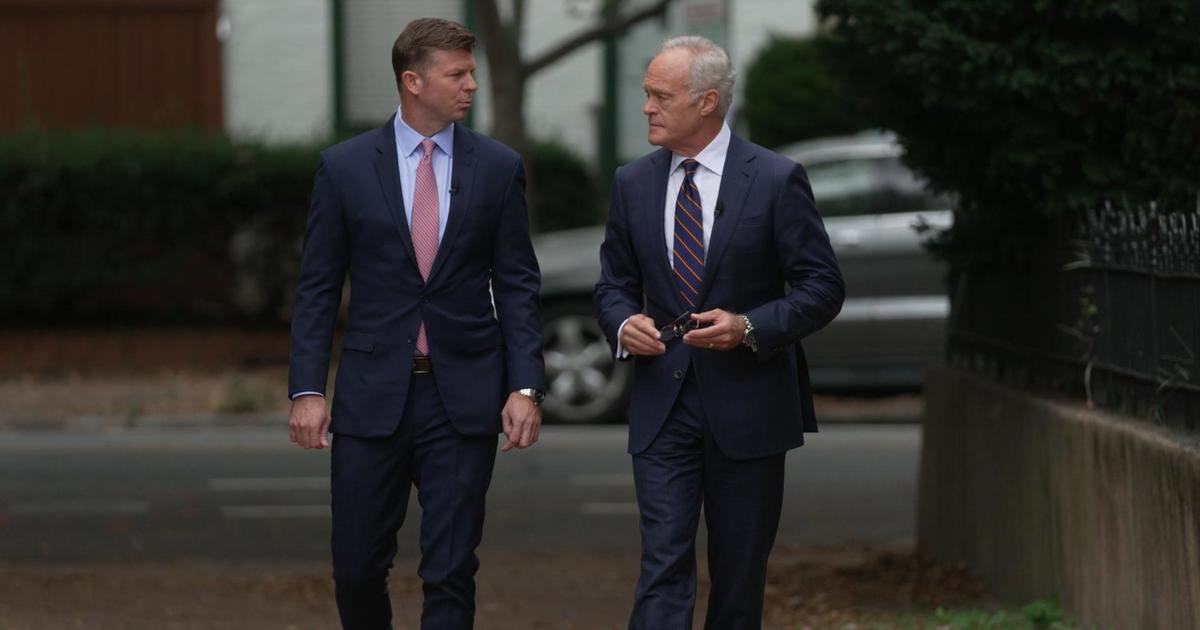New York City Mayor Eric Adams on his approach to crime, COVID restrictions, and his self-described "swagger"
New York City has had all kinds of larger-than-life mayors, but never anyone quite like Eric Adams. Dapperly dressed, with a pierced ear and dramatic life story, he says and does things that a lot of other Democratic politicians would not. He talks openly about being a victim of police brutality as a teenager, who then went on to become a police officer. He speaks out forcefully about addressing economic inequality while also reaching out to work with some of the wealthiest business leaders on Wall Street. Adams got to city hall by winning a hotly contested Democratic primary in which he promised to restore "law and order." He's described himself as "the face of the new Democratic party," and people all over the country will be watching to see how he addresses rising crime, new COVID outbreaks, and the serious economic damage caused by the pandemic.
Anderson Cooper: Has there ever been a mayor who was in a gang, (LAUGH) grew up as you did, got beaten by police, and then joined the police force?
Eric Adams: There's a subtext to the election, you know? I'm hoping the young man that is sitting in Riker's Island-- because he's dyslexic and did not get the tools he deserved realizes that, "Hey, Eric Adams was dyslexic." "Eric Adams sat in a cell." I'm hoping those who are on the verge of homeless or homeless will say, "Dammit, Eric was on the verge." You know, there's a great moment here. A bend in the road is not the end of the road, just make the turn.
Mayor Adams has been trying to help the city make a turn since he took over 114 days ago. Tens of thousands of small businesses here have disappeared since the pandemic, unemployment is nearly twice the national average, and major crime is up 43% from this time last year.
Nearly two weeks ago, a gunman shot ten people on a crowded subway in Sunset Park, Brooklyn.
The alleged perpetrator was arrested after wandering the city for 30 hours.
Anderson Cooper: Is the subway shooting an indication that this city is in real trouble in terms of crime?
Eric Adams: No. I don't believe so. When that shooting happened on Tuesday, Wednesday people were back on the train.
Anderson Cooper: What do you say to New Yorkers who are-- are scared and feel that the city is headed in the wrong direction in terms of crime?
Eric Adams: We've moved 1,800 guns off the streets of our city since I've been elected. 1,800. And so we're putting in place the foundation of dealing with the immediate needs of violence, but we're also stopping the pipeline that causes children to get involved in violence.
Adams supports social and educational programs designed to steer young people away from crime. But he's also called for a police crackdown on low-level offenses like public drinking and shoplifting and taken steps to clear homeless encampments and stop people from sleeping in the subway. He's deployed new uniformed police units that he says have been specially trained to confiscate illegal guns in high-crime neighborhoods without repeating the abuses of "stop and frisk" policies under Mayors Rudy Giuliani and Michael Bloomberg. New York's last mayor, Bill de Blasio, disbanded the plainclothes units that did a lot of this work.
Eric Adams: We were so far in the wrong direction of, really, abusive policing in our city and country that people got so fed up that they turned the ship too far in the wrong direction. There is--
Anderson Cooper: Too far to the left, you're saying?
Eric Adams: To the left. There is a middle ground. We only talk about, "How do we protect the rights of those who commit a crime?" How about start talking about, "How do we protect the rights of people who are doing the right thing?"
Anderson Cooper: There's probably a lot of liberals who are concerned you're a Republican.
Eric Adams: Listen, there are 8.8 million people in this city, 30 million opinions, but there's one mayor that's going to make the decisions.
Adams is nothing if not confident. Watching him walk down the street, you'd never notice the weight of the city's problems on his shoulders.
Anderson Cooper: You've talked about swagger. (LAUGH) Walking down the street with you, I-- you have swagger, certainly.
Anderson Cooper: And you've said that when-- the mayor has swagger, the city has swagger.
Eric Adams: That's right. (LAUGH)
"Saturday Night Live" has already taken notice.
Eric Adams: I love that skit, by the way.
Anderson Cooper: So what is swagger?
Eric Adams: It's, you know, feeling as though you've overcome so much that you can overcome whatever is in front of you.
New York has overcome hard times in the past, he says, and so has he. As Adams took the oath of office in Times Square just after New Year's Eve, he held up a picture of his late mother, Dorothy, who struggled to support six children as a housekeeper and cook. He told us there were times she feared the family would get evicted while he and his siblings were in school, so she sent them to class with extra clothes.
Eric Adams: She used to give us, Anderson, a garbage bag full of clothing every day because she thought the marshals was going to throw us out. My siblings and I, they used to call us the garbage bag children. I can still remember having this feeling in my stomach, you know, "Darn it, don't let the marshals be out there." We'd get embarrassed.
Anderson Cooper: You had joined a gang when you were 14. Is that-- is that right?
Eric Adams: Fourteen when I joined But I was a well-known number runner at 12.
Anderson Cooper: You were running numbers at 12 years old--
Eric Adams: Yeah, that was the illegal gambling system.
When he was 15, he and an older brother were arrested for criminal trespassing and taken to the 103rd precinct in Jamaica, Queens, where he says police officers beat them.
Eric Adams: They just continually-- they kicked us, kicked us in the groin over and over again. Every time I would see a police car I relived the beating. Every time I heard a siren.
Anderson Cooper: How did somebody who had that experience with police decide to join the police force?
Eric Adams: The Reverend Herbert Daughtry and a group of the civil rights leaders brought 13 young men to the House of the Lord Church and stated that it was time for us to go into the police department and fight for reform inside.
Anderson Cooper: What did you think when they said to you that you should join the police force?
Eric Adams: I th-- thought they were outta their minds. (LAUGHTER)
He spent 22 years on the force, rising to the rank of captain and emerging as a leading voice for reform within the department. After serving seven years in the state senate and another eight as Brooklyn borough president he defeated 12 other candidates for the Democratic mayoral nomination and then easily won the general election in November.
Anderson Cooper: You said a while back that you were the new face of the Democratic Party. Where are you on the political spectrum?
Eric Adams: I am a simple, pragmatic Democrat. (LAUGH)
But Mayor Adams was a registered Republican for seven years when Rudy Giuliani was mayor and Bill Clinton was president.
Anderson Cooper: What was your thinking then?
Eric Adams: --It was clear-- (LAUGH) no, my-- mother say, "Boy, what's wrong with you?" (LAUGHTER)
Anderson Cooper: Did she say that to you? (LAUGHTER)
Eric Adams: She did. I was a police officer, and I saw the violence, and I wasn't seeing any help on the federal level. It was a protest vote.
Anderson Cooper: Did you vote for Rudy Giuliani?
Eric Adams: No, (LAUGH) I did not.
Mayor Adams was barely three weeks on the job when he spoke at a vigil for two police officers who were fatally shot while responding to a call in Harlem in January.
Adams at vigil: And I'm saying… don't give up. Don't become so frustrated and disenchanted to allow the violent people around us to do what they think they can do.
He's also met with the families of victims of gun violence, like 12-year-old Kade Lewin, who was shot to death while sitting in a car eating. Adams argues that people who attended Black Lives Matter protests over killings by police should be supportive of his efforts to prevent people like Kade Lewin from being gunned down by criminals.
Eric Adams: Democrats don't like talking about intervention. But we have to lean into the discomfort of the immediate things we must do. Because you can't say Black lives matter when a police officer shoots a young person, but does that Black lives matter when a 12-year-old baby was shot?
Anderson Cooper: You say the Democrats don't like to talk about that. Why is that?
Eric Adams: Because when you talk about intervention, you have to use the term of giving police officers the tools to deal with violence right now.
Anderson Cooper: That makes a lot of very liberal Democrats a little worried--
Eric Adams: Yes, it does.
Anderson Cooper: Because that's Rudy Giuliani language.
Eric Adams: They have allowed Rudy Giuliani to hijack something that the overwhelming number of people of color want. They will tell you, "We want our police. We don't want our police to be abusive." And that is the balance that I know we can do in this-- in this city.
He delivered that message to police on his first day as mayor at the same precinct house where he says he was beaten as a teenager.
Adams speaking outside 103rd precinct: There is a covenant that we are establishing. We will give them the tools and the support that they need, but we are also going to hold them to a high standard.
Mayor Adams is 61 years old. He's not married but has a long-time partner and a 26-year-old son from a previous relationship. When he's not paying unexpected visits to police precincts, or sliding down fire poles, he's popping up at night-clubs, openings, and parties, rarely missing a chance to promote the Big Apple.
Adams speaking at Blinx party at One Vanderbilt: So everyone who moved to Florida, get your butts back to New York City because New York City is where you want to be.
Anderson Cooper: You get around.
Eric Adams: I love the city. And I-- love my job.
Anderson Cooper: you are an interesting New York character, don't you think?
Eric Adams: No, just the opposite, I personify the energy of New York. Our leaders have not always done so.
Getting tourists and commuters to return to the city is one of his big priorities.
Only about 40% of workers are believed to have returned to their offices so far. The mayor's tried to lift some COVID restrictions to help businesses without causing a major new outbreak.
Anderson Cooper: A federal judge has ruled that Centers for Disease Control and Prevention, they can't require masks on airplanes and other transport. You think [it's] a mistake to not require masks on planes, on trains, and in high traffic areas?
Eric Adams: Yes. I think it's a huge mistake not to require. We're still requiring it in our subway system and on our buses.
The mayor likes to describe himself as "perfectly-imperfect." His critics would certainly agree with the "imperfect" part. Some progressive Democrats believe his law and order approach will lead to more police abuses without reducing crime. Advocates for the homeless argue it's inhumane to evict people from subways or encampments without offering them a safe and suitable place to stay. And government watchdog groups are deeply concerned about some of the mayor's appointments. His deputy mayor for public safety Philip Banks was once the NYPD's highest-ranking uniformed officer, until he resigned in 2014 and was later named an unindicted co-conspirator in a police corruption case.
Anderson Cooper: Is that the kind of person you really want to have in your inner circle?
Eric Adams: We're in a city of perfectly imperfect people. During a time that we have a law enforcement crisis, Phil brings a lot to the table.
Anderson Cooper: There was testimony that he let a businessman pay for his vacation travel and expenses. You said you're not going to tolerate wrongdoing by your officers. Are the things he did okay?
Eric Adams: Listen, he could have made better decisions of who was around him. What I do know is that we're going to have a very transparent government here in city hall. Transparency is the best way to make sure those who are hired are doing their jobs.
The latest Marist poll shows Eric Adam's approval rating is over 60%.
But it's early still, and New Yorkers are not a particularly patient lot.
Adams told us he's studied the history of past mayors, so before we left we asked him for his assessment of some of his famous predecessors, whose portraits hang in city hall.
Anderson Cooper: I just want to try a quick, like, speed round just—
Eric Adams: Yes.
Anderson Cooper: --asking you what words come up when I talk about some former mayors. David Dinkins.
Eric Adams: Compassionate, caring, kind.
Anderson Cooper: Michael Bloomberg.
Eric Adams: Thoughtful, kind, loved the city.
Anderson Cooper: Ed Koch.
Eric Adams: Eric Adams. Many personalities. (LAUGH) Real life.
Anderson Cooper: Really? You see a similarity with Ed Koch a little bit?
Eric Adams: Yes. Thick skin.
Anderson Cooper: Ed Koch used to go around asking--
Both: "How am I doing?" (LAUGH)
Anderson Cooper: What do you say? (LAUGH)
Eric Adams: I just give a thumbs up. (LAUGH) If they give me a thumbs up, I know I'm doing the right thing.
Anderson Cooper: Okay. (LAUGH)
Eric Adams: If they use one of the other four (LAUGH) fingers, then I got a problem. (LAUGHTER)
Produced by Andy Court. Associate producers, Evie Salomon, Mirella Brussani and Annabelle Hanflig. Broadcast associate, Eliza Costas. Edited by Joe Schanzer.





